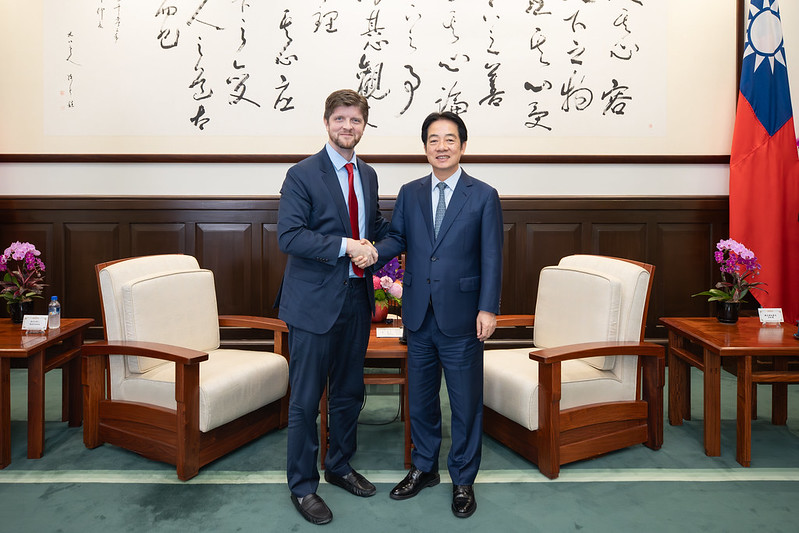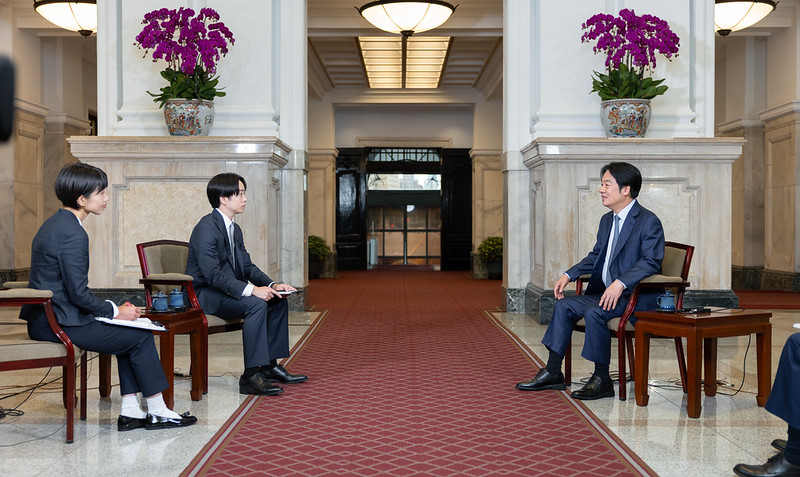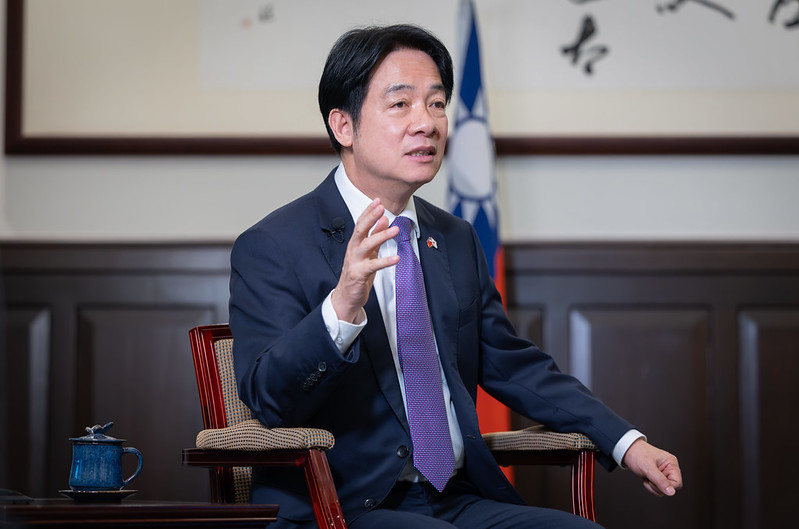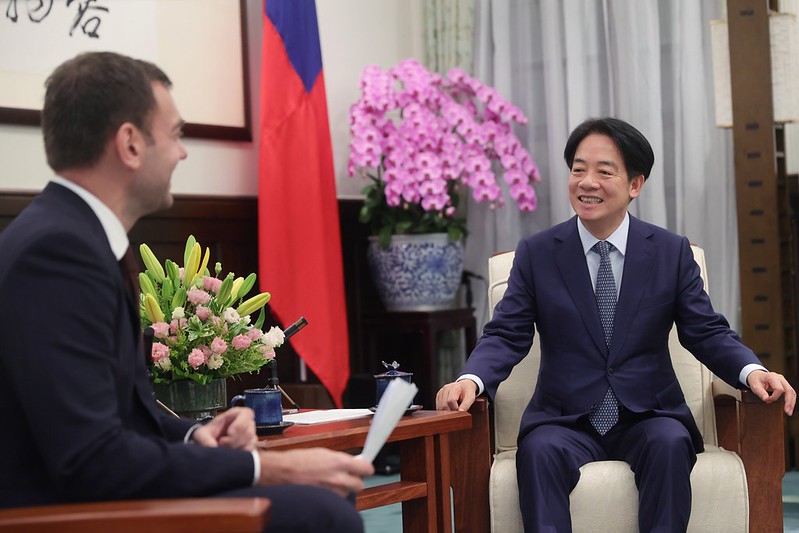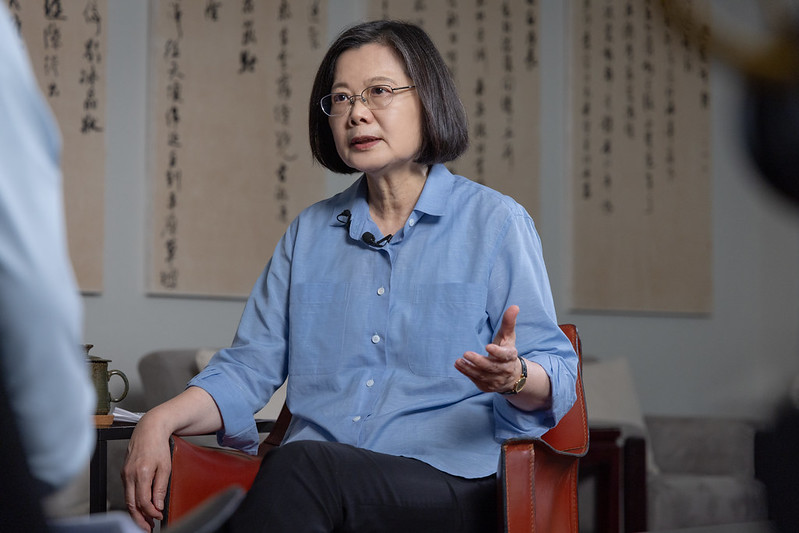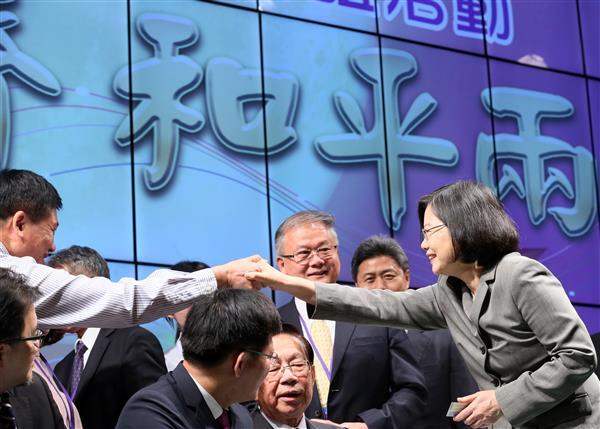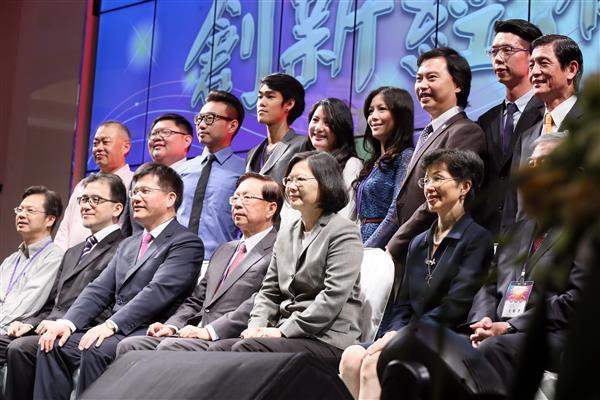News & activities
 News releases
News releases
During the noon hour on September 14, President Tsai Ing-wen attended the 2016 Mid-Autumn Festival luncheon for representatives of Taiwan-invested enterprises based in mainland China. The president spoke to the assembled guests about the key focus of government policy, which is to establish an economic development model based on the core concepts of innovation, employment, and equitable distribution. The goal is to reinvigorate the domestic economy and lead Taiwan out of an extended period of economic sluggishness. She also stressed that the government will do everything possible to promote positive cross-strait interactions and establish lasting pragmatism and stability in the cross-strait relationship.
The following is a translation of President Tsai's remarks:
Today is the eve of the Mid-Autumn Festival, and we're experiencing a typhoon today. I feel very glad to be together with all of you here in Taichung on such a special day. I want to give a special welcome to those of you who've come back to Taiwan for the holiday, and to wish everyone a happy Mid-Autumn Festival!
Two days ago, Mr. Tien Hung-mao (田弘茂) formally took over as chairman of our Straits Exchange Foundation (SEF). Mr. Tien is deeply experienced in both international and cross-strait affairs. He has served in the past as a national policy advisor to the president, and was also minister of foreign affairs and Taiwan's Representative to the United Kingdom. He helped build the Institute for National Policy Research into a world-renowned think tank that has cultivated many experts in cross-strait affairs. He is also a former top advisor to Taiwan's Chinese National Federation of Industries, so he is intimately familiar with the development and needs of industries on the two sides of the Taiwan Strait.
I am quite confident that, with his professional expertise and experience, and with the full cooperation of the SEF and the Mainland Affairs Council, Mr. Tien will most certainly be able to provide excellent service to Taiwanese firms operating in mainland China.
Many of the business people here at this luncheon have spent a lot of time shuttling back and forth across the Taiwan Strait on business, and have made big contributions to Taiwan's economic development and international competitiveness. You have shown us all just how resilient and resourceful Taiwanese companies can be. These qualities have been especially evident in recent years because, amidst increasingly difficult economic conditions, you've redoubled your efforts to transit and upgrade your companies.
In the face of a rapidly changing global economy and a host of possible risks, countries around the world have reached a broad consensus regarding the general direction of economic policy, as reflected in the May 2016 G7 summit in Ise-Shima, Japan and the G20 summit in early September in Hangzhou. The consensus view is that all countries need to proactively adopt comprehensive measures to ensure short-term economic stability. At the same time, with an eye on mid- and long-term prospects, we need to take decisive action to reform and restructure our economies and search for new engines of growth.
In recent years, economic growth in mainland China has tapered off a bit, and Beijing is emphasizing that its economy has entered into a "new normal." Many policies are being adjusted, and the investment climate is undergoing big changes. These developments pose major challenges to cross-strait economic and trade relations, and to Taiwanese companies.
Here in Taiwan, besides dealing with the impact of economic change on the other side of the strait, we must also deal with our own long-term structural problems that are eroding our export competitiveness and keeping growth anemic. The biggest responsibility of the new administration, therefore, is to revitalize our domestic economy and lead Taiwan out of its extended period of economic sluggishness.
Over the past 100-plus days, the new administration has made many efforts to change Taiwan's economy. The key focus of our government policy is to establish a new model for economic development based on the core concepts of innovation, employment, and equitable distribution. At the same time, our government has prioritized five major innovative industries: green energy; the Internet of Things; smart machinery; the national defense industry; and the biotech and pharmaceutical industry.
Among these five, our Executive Yuan has already approved plans to launch "Smart Machinery" and "Asia Silicon Valley" initiatives, and the plans are now being implemented.
In order to address both short- and long-term goals, the Executive Yuan in late August launched an investment expansion program. This program includes various measures to improve the investment climate as well as attract and cultivate talent. It also sets out a NT$340 billion program for infrastructure development projects and investments in emerging industries. This program was devised by state-owned enterprises and companies in which the government holds a substantial interest.
At the same time, our government has established a NT$100 billion "industrial innovation and transition fund" and set up a "national investment company" with funding from the National Development Fund, state-owned enterprises, and private companies. The objective is to improve Taiwan's investment climate and enhance our national competitiveness.
Also, in response to regional economic development trends, we have adjusted our strategy for external economic and trade relations by launching the New Southbound Policy. Formulated by the National Security Council, guidelines for this policy was approved by the government in mid-August, and since then the Executive Yuan has adopted a promotion plan for the New Southbound Policy.
In the future we intend to establish a new model for cooperation with countries in the ASEAN and South Asian regions as well as New Zealand and Australia. This cooperation will focus particularly on such areas as investment & trade, technology development, tourism & culture, cross-border talent exchange, sharing of resources, regional cooperation, and bilateral & multilateral agreements. The New Southbound Policy has already progressed from pure policy to implementation. We intend to continue moving forward on this front one step at a time, gradually building up experience and a track record of success.
These efforts are all being undertaken to accelerate the pace of economic restructuring and spur industrial transformation and upgrade. If our companies continue to improve, Taiwan's economy will be able to make a strong rebound, and cross-strait economic and trade relations will naturally expand and develop in a more healthy fashion.
People like yourselves, who do business in mainland China, have encountered difficulties and have much to say. This government will be steadfast in supporting you. We will help you resolve problems, protect your rights and interests, and will strengthen various services and mechanisms to help you cope with issues ranging from daily living to the education of your children. When you encounter problems, the government will give its active support. We won't leave you feeling like you're on your own.
Everyone is very concerned about recent changes in the cross-strait relationship. I want to reiterate that the government has not wavered one bit in its determination to maintain cross-strait peace and stability. Even as we work to safeguard the interests of the state and the greater good of our people, we will also do everything we can to promote positive cross-strait interactions and establish a pragmatic, stable, and sustainable cross-strait relationship.
I also want to stress that both sides of the Taiwan Strait share joint responsibility for the development of cross-strait relations. We are hopeful that Mr. Tien taking over as chairman of the SEF will bring about new opportunities in the cross-strait relationship, and spur harmonious interactions as we move toward new milestones.
The activities held by the SEF to mark the three big holidays each year afford excellent opportunities for our government and Taiwanese business people to rub elbows. I'm very happy and grateful to all of you for taking part in this wonderful event, for it has brought us all closer together. Chairman Tien's responsibilities will grow heavier, so I do hope you'll all lend him your support. Let us pool our resources, tackle challenges together, and achieve success! Once again, I wish you all a happy Mid-Autumn Festival!
Also attending the luncheon were the Executive Yuan's Mainland Affairs Council Minister Chang Hsiao-yueh (張小月), SEF Chairman Tien Hung-mao, SEF Vice Chairman Chang Tien-Chin (張天欽), Deputy Minister of Economic Affairs Jong-Chin Shen (沈榮津), Deputy Secretary-General to the President Liu Chien-sin (劉建忻), Taichung City Mayor Chia-Lung Lin (林佳龍), and Secretary General of Chinese National Federation of Industries Lien-sheng Tsai (蔡練生).
